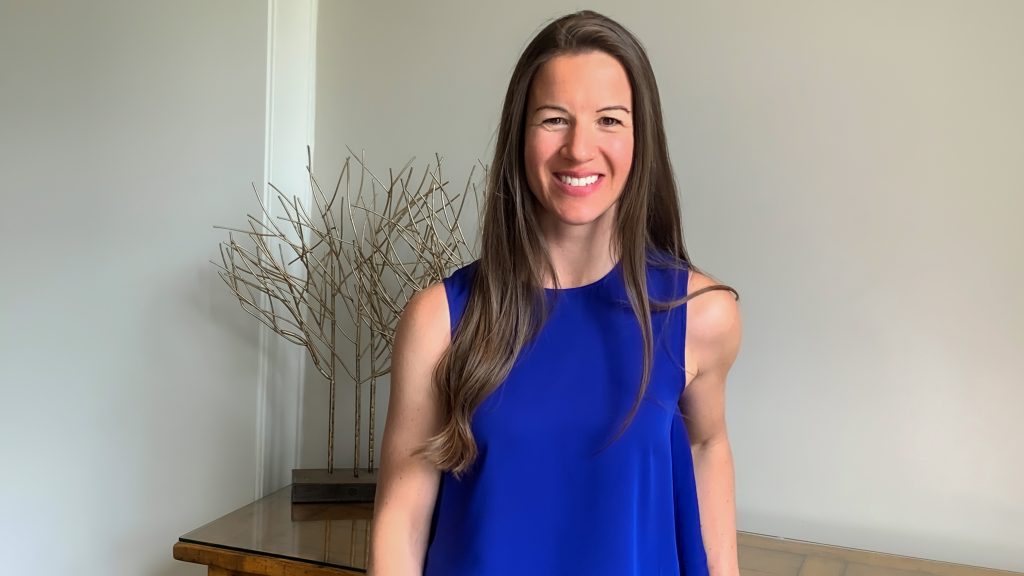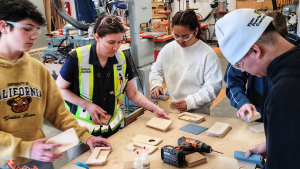An expert consultant on Canada’s Truth and Reconciliation process says there is an economic component to moving forward for both Indigenous and settler peoples.
Rise Consulting founder and principal Annie Korver spoke at the Truth, Reconciliation and the Way Forward session at the Vancouver Regional Construction Association’s Construction Leadership Forum in Whistler, B.C. recently.
Korver explained to the audience that in 2015 Canada’s Truth and Reconciliation Commission created a roadmap to improved relations between Indigenous and non-Indigenous peoples in Canada through 94 calls to action aimed at governments, institutions, corporations and individual citizens.
Rise Consulting, she said, focuses on “the rising presence of Indigenous peoples in Canada working with corporate Canada to understand how they can respond to the calls to action.”
Korver said she has seen some corporate progress in efforts to better understand the reconciliation process.
“I’ve been really blessed to be speaking and sharing knowledge and also (sharing) my community. I call myself a reconciliation practitioner and at the end of May in Calgary we have a three-day conference (), and the entire conference is focused on these conversations, on moving forward, responding to calls to reconciliation, thinking about leadership, employment, procurement and training,” Cover said.
Key to reconciliation is decreasing dependency on the Canadian government and increasing economic opportunity, she added.
Korver said resource companies by necessity have led the corporate sector in the reconciliation process.
“Energy development projects are infringing on Section 35 rights and under our constitution when there’s an infringement on a right and land is being developed and used by Indigenous peoples, there is a requirement to accommodate and mitigate and to understand land use we consult,” she said.
“Energy, mining, extractive oil and gas, they’re really leading in this space because they’re making an impact. They’re required to, but where I see a lot of change now, which is really encouraging, is that organizations that aren’t required to consult are responding to the call because they want to.
“They know it’s the right thing to do and an opportunity to support the rising presence of Indigenous peoples, not to check a box and get a regulatory application through.”
The construction industry is also working towards reconciliation and is making progress, she said.
“One leader in this space is Chandos Construction. They’re doing fantastic things in their work and EllisDon has three people in full-time roles working in communities in the area of Indigenous relations,” she said.
Korver also cited the work of Indigenous business leader Carol Anne Hilton and her concept of “Indigenomics,” which encourages economic reconciliation through greater Indigenous participation in the economy.
“Indigenous peoples create companies nine times faster then the Canadian average. The growth rate of the Indigenous population is the fastest in Canada,” she said. “The Canadian government now has a five per cent procurement guarantee for Indigenous business, which is fantastic, and we’re seeing more of this in Canada in the corporate sector.
“When the demand is there it creates the opportunity for Indigenous companies to grow and to build and to be able to respond to opportunities,” Korver added.
“For the construction sector the opportunity exists to say, what are the goods and services that are procured, lumber for example. Where are the First Nations wood lots and how can I work with them directly to procure a product? How can I help with harvesting and reforestation? It’s really understanding where’s the product is coming from and is there a role in the contiguous supply chain for Indigenous peoples,” she said.
Follow the author on Twitter .











Recent Comments
comments for this post are closed